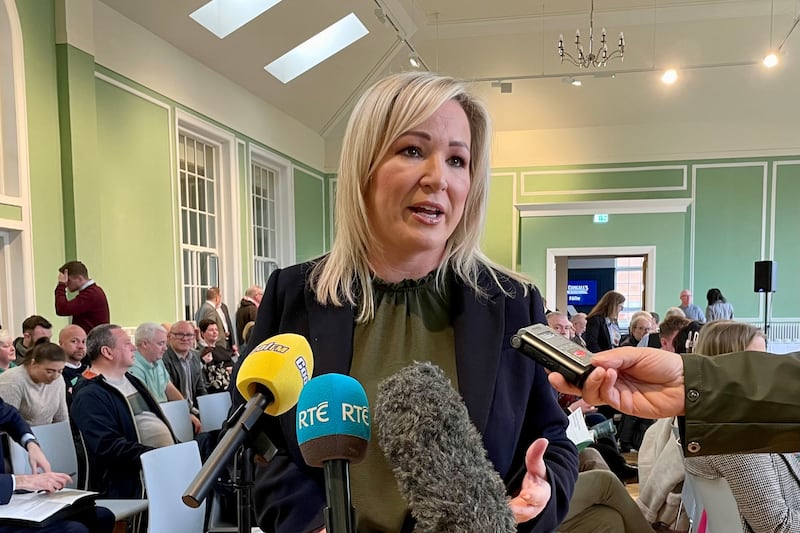Sectarianism has contributed to the housing crisis in Northern Ireland and continues to “influence decision-making” on the needs for homes, a new book has claimed.
Dr Elizabeth DeYoung from the University of Pennsylvania has spent six years looking at the issues with her book, she says, shedding light on the failures of the post-Good Friday Agreement government to address the north’s housing crisis.
In Power, Politics and Territory in the New Northern Ireland: Girdwood Barracks and the Story of the Peace Process, Dr DeYoung examines the challenges faced by housing rights campaigners in the north.
She also highlights the “persisting inability of leading parties to effectively address the housing crisis in a manner free from the shackles of sectarianism”.

The book particularly looks at the redevelopment of the former Girdwood Army Barracks in north Belfast, which was hailed as a ‘symbol of hope’ for Northern Ireland.
It was a major investment in a former conflict zone and regarded as an internationally significant peace-building project.
But, instead of adhering to the tenets of the Agreement, Dr DeYoung says that “sectarianism dominated the regeneration agenda at Girdwood” with politicians, community groups and paramilitaries wrangling over the site’s future and a “territorial contest won out over housing needs”.
After 11 years of negotiation and £11.7 million, the EU-funded Girdwood Community Hub opened its doors to the public in 2016, but its impact has been underwhelming, DeYoung writes.
The same story has played out recently at the Mackie’s site in west Belfast where a majority of Belfast City councillors (12-1) voted in favour of turning the site off Springfield Road into a greenway instead of a social housing development which is, according to campaigners, desperately needed.
The 25-acre site is a publicly owned space and if developed, has the potential to provide 900 cross-community homes.
A campaign, led by families united under the group name ‘Take Back the City’, is supported by Participation and Practice of Rights (PPR), an organisation dedicated to empowering marginalised individuals to assert their rights and catalyse real social and economic change in their communities.

Dr DeYoung said: “The legacy of Girdwood is the unfinished business of housing rights and equality in Belfast’s still-divided interface communities.
“My book argues that the Girdwood Barracks redevelopment is a microcosm of the peace process itself and the ways that post-agreement politics crumbled under power-sharing.”
Dr DeYoung will launch her book at an event at Queen’s University Belfast on January 29, where she will be in conversation with Marissa McMahon, a housing justice scholar and Professor Marianne Elliott, Professor Emeritus at the University of Liverpool.
The event will see discussions about the Mackie’s case and its broader implications.
Ms McMahon, a key participant in the Mackie’s campaign, said the site “represents a critical battleground in our ongoing struggle for housing rights in Northern Ireland”.
“The decision to prioritise a greenway over social housing starkly exposes the disconnect between the political agenda and the urgent needs of our communities,” she said.
Information on the book launch can be found at www.eventbrite.co.uk/e/booklaunch-power-politics-territory-in-the-new-northern-ireland-tickets-773851329157








